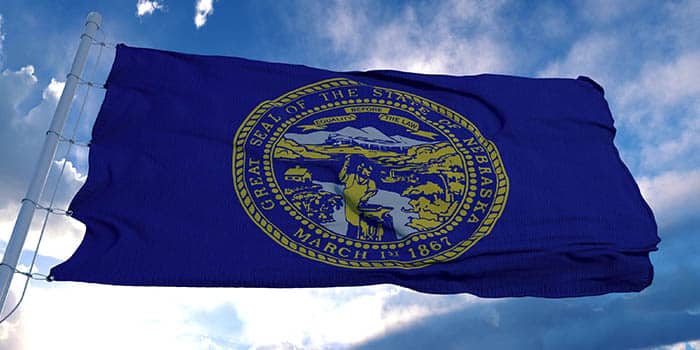- Casino
- By State
- Alabama
- Alaska
- Arizona
- Arkansas
- California
- Colorado
- Connecticut
- Delaware
- Georgia
- Florida
- Hawaii
- Idaho
- Illinois
- Indiana
- Iowa
- Kansas
- Kentucky
- Louisiana
- Maine
- Massachusetts
- Maryland
- Michigan
- Minnesota
- Mississippi
- Missouri
- Montana
- Nebraska
- Nevada
- New Hampshire
- New Jersey
- New Mexico
- New York
- North Carolina
- North Dakota
- Ohio
- Oklahoma
- Oregon
- Pennsylvania
- Rhode Island
- South Carolina
- South Dakota
- Tennessee
- Texas
- Utah
- Vermont
- Virginia
- Washington
- West Virginia
- Wisconsin
- Wyoming
- By State
- Slots
- Poker
- Sports
- Esports
Fact-checked by Angel Hristov
Federal Court Sends Social Casino Lawsuits Back to Tennessee
Tennessee residents sued Playtika, VGW Holdings, Aristocrat Leisure, and Product Madness, alleging they operated illegal online gambling platforms that led to financial losses for local players

The United States Court of Appeals for the Sixth Circuit has decided that the Tennessee state court must hear lawsuits filed against several online social casino operators. On March 16, 2025, the court upheld a lower court’s ruling that federal courts do not have jurisdiction over the matter.
Sixth Circuit Upholds State Jurisdiction
Tennessee residents brought the lawsuits against Playtika, VGW Holdings, Aristocrat Leisure, and Product Madness. The plaintiffs claimed these companies ran illegal online gambling platforms causing financial losses for players in Tennessee. The courts combined the cases under a single appeal.
The plaintiffs tried to get back money they lost gambling under a Tennessee law. This law lets family members or others claim funds lost in illegal gambling. However, the defendants moved the cases to federal court. They said the suits were class actions under the Class Action Fairness Act (CAFA) and met the rules for federal diversity jurisdiction.
A Tennessee district court sided with the plaintiffs. It said the lawsuits did not fit the criteria for federal jurisdiction. The court found that the cases were not class actions under CAFA. It also said that the money losses claimed by different people could not be added up to reach the amount needed for diversity jurisdiction.
On appeal, the Sixth Circuit chose not to address the statutory arguments about CAFA and diversity jurisdiction. Instead, it examined whether the lead plaintiff, Gina Burt had the legal standing to pursue the case in federal court.
Appeals Court Rules Lead Plaintiff Lacks Standing
The appeals court judges decided that Burt did not suffer a gambling loss herself, which means she did not face a direct injury as Article III of the US Constitution requires. Federal law says plaintiffs must show they were harmed by a defendant’s actions to move forward with a case. Because Burt tried to recover losses for other people rather than herself, she did not meet this requirement.
The court also did not buy the claim that Tennessee’s law worked like a qui tam statute, which would have let regular people sue for the government. It decided that Tennessee’s law to get back gambling losses was meant for regular people, not for public enforcement, so it could not be put in that category.
Because of this decision, the cases will now go to Tennessee state court instead of the federal system. This is not good news for the defendants, who wanted to keep the cases in federal court thinking they would have a better shot at getting them thrown out there.
Legal experts think the ruling might make people look more at social casino platforms under state gambling laws. Tennessee’s law defines gambling in a wide way and puts strict bans in place. This means social casinos could face more legal problems down the road.For the time being, the case will go back to Tennessee courts. There, plaintiffs will make their case based on state laws that control gambling activities.
Related Topics:
Silvia has dabbled in all sorts of writing – from content writing for social media to movie scripts. She has a Bachelor's in Screenwriting and experience in marketing and producing documentary films. With her background as a customer support agent within the gambling industry, she brings valuable insight to the Gambling News writers’ team.
Must Read
Legal
April 9, 2025
Stake.us Hit with Class Action Lawsuit in Illinois
Legal
April 9, 2025
Delaware Orders VGW Luckyland to Halt Operations
More Articles





Industry
April 15, 2025
Indiana Bill Seeking to End Lottery Couriers Advances

Industry
April 15, 2025
Brazil Weighs Stricter Rules on Gambling Advertising

Esports
April 15, 2025
Roblox’s Safeguards, Not Enough to Keep Children Safe

Casino
April 15, 2025
Cops Hunt for Teen After Osage Casino Hotel Shooting













